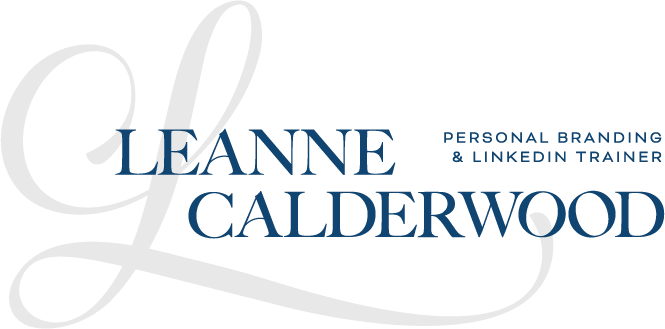Most people use AI like they use a microwave: quick, convenient, and only when they're…

Not just for celebrities; Personal Branding is for Everyone.
Ever scrolled through Instagram, noticing influencers promoting brands and thought, “Well, personal branding is just for them”?
Think again.
Personal branding isn’t just for the latest pop sensation or a YouTube superstar. It’s for **you**. Yes, especially if you’re in B2B sales or an intrepreneur working within a larger organization. Yes, it is for introverts, extroverts, and anyone who is looking to make an impact on a community.
Today, personal branding is no longer an option but a necessity, even in sectors as traditionally faceless as B2B. Let’s debunk that myth and shine a spotlight on why everyone, especially you, should dive deep into personal branding.
First, a few definitions to make sure we’re all on the same page:
Wikipedia defines personal branding as this –
the conscious and intentional effort to create and influence public perception of an individual by positioning them as an authority in their industry, elevating their credibility, and differentiating themselves from the competition, to ultimately advance their career, increase their circle of influence, and have a larger impact.
The process of personal branding involves defining your unique value proposition, defining who it is you’re branding yourself to, creating a platform for amplifying your brand, and connecting with people in a consistent and authentic way.
While personal branding can seem like an abstract concept, being intentional about your brand will bring both you, and your audience, clarity about who you are and what you represent.
My definition of personal branding is as follows:
Personal branding is the intentional amplification of your personality traits so that you can set yourself apart from your competition, build trust with your audience and attract more leads and opportunities.
Intrepreneur: An intrepreneur is an individual who embodies the entrepreneurial spirit within a larger organization. They are the champions of innovation, driving new projects, and often taking a start-up approach to new initiatives, all while being a part of a bigger establishment.
Why is personal branding accessible to everyone, especially those in B2B and intrepreneurial roles?
-
It’s Not About Vanity; It’s About Value
Personal branding is not about flaunting or being an attention-seeker. It’s about communicating your unique value proposition. B2B sales professionals who can articulate their unique strengths, values, and experiences are a step ahead in the credibility race. Your prospects want to see the human behind the business. They buy into people first, then products or services.
-
A Digital Footprint That Boosts Trust
We live in the age of Google. Potential clients, partners, or employers will look you up online. An established personal brand ensures they find consistent, professional, and trustworthy information about you. When B2B professionals neglect this, they miss out on an opportunity to be perceived as an industry expert.
-
LinkedIn: It’s More Than Just a Job Search Tool
Many assume LinkedIn is only for job seekers, and they’re not completely wrong. Yes, LinkedIn is still the go-to place for job seekers and recruiters, but it’s also the go-to platform for marketers and sales professionals. It’s where B2B transactions, collaborations, and partnerships blossom. Intrepreneurs and B2B sales professionals with a robust LinkedIn profile and presence can foster meaningful connections, establishing a rapport even before the first official meeting.
-
A Magnet for Opportunities
By broadcasting your expertise and sharing insightful content related to your niche, you’ll inadvertently attract opportunities – be it speaking engagements, collaborations, or even sales leads. Your personal brand becomes a beacon, drawing like-minded professionals and prospects towards you.
It’s not easy to start and maintain a personal brand. Some of the myths around branding (and its former celebrity status) can keep us from our greatness. Call out your own stumbling blocks and recognize that these things may be holding you back from your branding potential:
- Imposter Syndrome: One of the most common hurdles professionals face when building their brand is feeling they aren’t good enough or doubting their achievements. Everyone starts somewhere, and each experience, no matter how minor it seems, adds value. Embrace your journey and own your story.
- Overnight Success Myth: Building a personal brand takes time. It’s not an overnight success. Stay persistent, and remember that each effort you make, each post you write, each connection you establish, incrementally contributes to your brand.
- Dealing with Criticism: Not everyone will resonate with your brand. As you put yourself out there, be prepared for a mix of feedback. Constructive criticism is invaluable—it helps you refine and grow. Learn to distinguish it from mere negativity, and don’t let the latter discourage you.
- Finding Your Unique Voice: In a sea of professionals, differentiating yourself can be challenging. It might be tempting to emulate someone else’s style, but authenticity is crucial. Your personal brand should be a genuine reflection of who you are, not a facsimile of someone else.
- Maintaining Consistency: While it’s essential to have a consistent personal brand, maintaining that consistency, especially across various platforms, can be challenging. Regular check-ins, content calendars, and brand guidelines can be handy tools in ensuring you remain on track.
Now that branding has become accessible to the everyday professional, what are some ways we can start down our own branding path?
- Self-Assessment: Every brand has its foundation. Before you project your image out into the world, take a moment to introspect. What do you stand for? What are your values, strengths, and passions? Jot down your achievements, experiences, and skills that define your professional journey. Understanding these will form the cornerstone of your personal brand.
- Consistency is Key: Whether it’s your LinkedIn profile, your personal blog, or face-to-face interactions, ensure there’s a consistent narrative. Your professional image, tone of communication, and even the visual elements you use (like a particular color or logo) should resonate with your personal brand’s essence. A consistent image helps in solidifying your brand in people’s minds.
- Engage, Don’t Just Promote: While it’s essential to project your achievements and strengths, personal branding is more about building relationships than mere self-promotion. Engage with your audience, join discussions, offer solutions, and share your knowledge. It’s through this two-way interaction that trust is built.
- Seek Feedback and Iterate: Understand how colleagues, mentors, or industry peers perceive you. Regular feedback can help you fine-tune your branding efforts. Moreover, as you grow in your career, ensure your personal brand evolves with you.
- Content Creation: Sharing insights, writing articles, or even commenting thoughtfully on industry-related posts can position you as a thought leader. Identify platforms where your target audience spends time and start creating or curating content that resonates with them.
No matter your industry or role, personal branding offers an unmatched advantage. It’s an investment in yourself and your future.
You’re more than just a part of your organization. You have a unique story, a unique perspective, and a unique value. Isn’t it time to amplify that?
Ready to transition from anonymity to a recognized industry expert? Start your branding journey by taking this personal branding quiz to help find YOUR personal branding superpower, and provide resources for getting started.
Remember, it’s not about becoming famous. It’s about becoming famously effective. Basically →You. Amplified.

RELATED – 8 Areas Of Focus When Designing Your Personal Brand
RELATED – 5 Myths About Personal Branding
RELATED – Personal Branding and Its Importance for B2B Professionals



